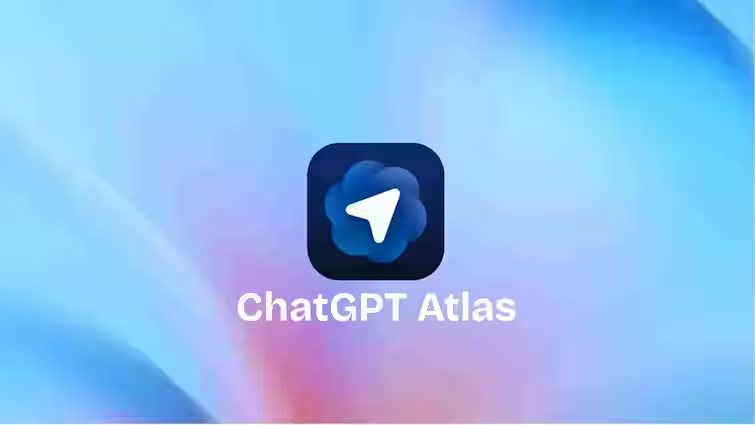Google Chrome is now on its way! OpenAI has launched its new browser, a game-changer in both revenue and speed.
- bySherya
- 22 Oct, 2025

Atlas Browser: OpenAI on Tuesday unveiled its new web browser, Atlas. The launch puts the company in direct competition with Google as a growing number of internet users rely on AI-based answers.

ChatGPT will now become the new door to internet search.
OpenAI's new strategy is a major step toward making its popular chatbot, ChatGPT, a central hub for online search. Doing so could allow the company to generate more revenue from digital advertising and traffic.
However, there is a concern that if ChatGPT starts providing summary replies directly to people, it could impact traffic for online publishers as users may skip clicking through to traditional websites.
ChatGPT currently has over 800 million users, many of whom use it for free. The company also sells premium subscriptions, but losses still exceed revenue. Atlas is currently launched on Apple macOS and will soon be available on Windows, iOS, and Android.
The browser wars begin again.
OpenAI CEO Sam Altman called the launch a "one-in-a-decade opportunity" to reshape the way browsers are thought of and used. Tech analyst Paddy Harrington believes competing with giants like Google will be a daunting challenge.
The browser market has also seen increased legal and commercial scrutiny over the past few months. Recently, an OpenAI official even stated that the company would be interested in acquiring Google if a court ordered it to sell Chrome. However, the US court rejected this petition.
Google Chrome currently has nearly 3 billion users and is already incorporating Gemini AI features into its offerings. Chrome's success story in 2008 proved how speed and performance can transform an entire market, and OpenAI is now trying to follow suit.
Altman's Vision
Altman believes that in the future, the URL bar of traditional browsers will be replaced by an AI chat interface. The most significant feature added to Atlas is 'Agent Mode,' which connects to the user's laptop and automatically searches and clicks on the Internet for them. It understands the user's browsing history and goals and provides results accordingly. In Altman's words, "It uses the Internet for you."
However, some experts consider this a threat to user privacy and control. They argue that this feature could create a profile based on user information and deliver search results influenced by advertisements.
Growing reliance on AI and ethical concerns
According to a recent study, 60% of US citizens and 74% of young people under the age of 30 use AI to find information. Google also began showing AI-generated summaries in its search results last year. However, two major problems arising from this trend are "hallucinations" (false information) and copyright disputes, such as the New York Times suing OpenAI for copyright infringement, while agencies like the Associated Press have preferred licensing deals.
A recent report by the European Broadcasting Union found that nearly half of the answers from major AI assistants, including ChatGPT and Google Gemini, were incorrect or incomplete.




